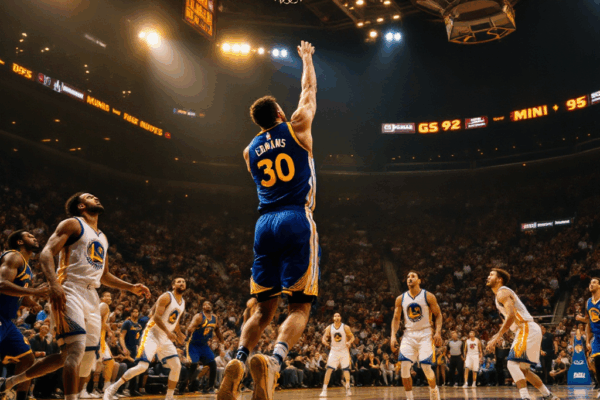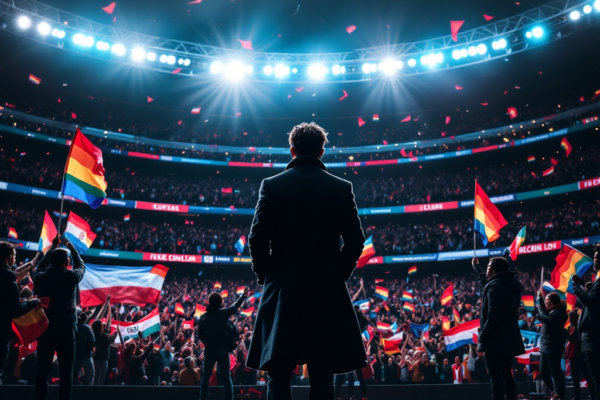Shock Exit in the Semifinals: Arsenal’s Season Shaken to Its Core
The UEFA Champions League was filled with hopes of victory, yet the night of May 7th in Paris became a nightmare for Arsenal fans. With an aggregate score of 3-1, where did it all go wrong?
Arsenal’s 2024/25 UEFA Champions League journey ended at the semifinals against Paris Saint-Germain (PSG). After a 1-1 draw in the first leg at home, a 2-0 defeat in the away leg shattered their dream of reaching the final. This elimination means far more than just a loss.
Arsenal’s Critical Moment: Lack of Finishing Touch
In the early stages of the match, Arsenal pressed aggressively against PSG. However, they failed to convert crucial opportunities into goals, which shifted the momentum of the entire game. While PSG’s goalkeeper Gianluigi Donnarumma delivered standout saves, Arsenal’s attacking line’s inability to finish left a lingering disappointment.
Manager Arteta’s Tactical Limitations Exposed
Mikel Arteta focused on boosting Arsenal’s offensive strength this season, but he revealed a lack of tactical flexibility in critical matches. Especially in the second leg of the semifinals, the defense struggled to contain PSG’s attack, and the failure to use substitutions effectively in the second half stood out. These issues remain key challenges Arsenal must overcome to advance further on the European stage.
Bright Spot: Victory Against Real Madrid
Arsenal proved their potential on the European stage by defeating powerhouse Real Madrid in the quarterfinals. This highlight marked an important moment showcasing the team’s growth and promise. However, the semifinal loss exposed that inexperience and psychological pressure still act as weaknesses for the squad.
Arsenal’s exit from the Champions League semifinals leaves more than regret—it provides crucial lessons for the team’s future. Strengthening the defense line, diversifying attacking options, and balancing the roles of midfielders have emerged as key tasks ahead. Arsenal fans are looking beyond this season’s disappointment, eagerly anticipating a stronger and more formidable team in the coming season.
What Was Arsenal’s Problem with Their Lack of Finishing in Crucial Moments?
Arsenal’s 2024/25 UEFA Champions League semi-final revealed both the team’s strengths and weaknesses. They pressed PSG aggressively from the start, but the goal remained elusive. After a draw in the first leg and a heavy defeat in the second, why did Arsenal’s players falter when it came to decisive finishing?
Early Pressure and Missed Opportunities
From the beginning, Arsenal launched an aggressive attack against PSG. Fast wing plays and forward passes from midfield unsettled PSG’s defense, yet the killer blow never came. Especially crucial were the saves by PSG goalkeeper Gianluigi Donnarumma, which played a pivotal role in stifling Arsenal’s early momentum.
Focus Lost Under Pressure
As the match progressed, Arsenal’s players visibly lost concentration. Efforts to guard against PSG’s counterattacks made their offensive play less daring, resulting in fewer goal-scoring chances. It seemed that Arsenal’s key attackers were weighed down by the pressure of the big stage, failing to showcase their usual quality.
Lack of Tactical Flexibility
Mikel Arteta’s tactical approach also left something to be desired. Arsenal could not devise an effective response to PSG’s defensive strategies, and the substitutions made in the second half fell short of their intended impact. The absence of adaptable game management further dulled Arsenal’s attacking threat.
Inexperience and Psychological Pressure
The confidence gained from knocking out Real Madrid in the quarterfinals might have ironically become a burden. The young players’ lack of experience on such a grand stage came through clearly, leading to diminished decision-making in critical moments. Arsenal must learn from this experience how to overcome psychological pressure in high-stakes matches.
Arsenal’s semi-final loss underscored both the team’s potential and the areas needing improvement. Enhancing finishing in key moments, maintaining focus under pressure, and ensuring tactical adaptability remain challenges ahead. How Arsenal grows from this experience will be an exciting storyline for the next season.
Arteta’s Choices and Limitations: The Arsenal Manager’s Dilemma
Beneath the dazzling attacking force lies a tactical vulnerability. At critical moments, the controversial lineups and substitution decisions have sparked debate—where exactly did manager Mikel Arteta’s strategy go wrong?
Arsenal’s exit in the 2024/25 Champions League semifinals laid bare Arteta’s tactical constraints. Their aggressive approach against PSG initially showed promise, but the lack of clinical finishing at decisive moments ultimately led to their downfall.
The Lineup Selection Dilemma
Arteta appears deeply conflicted about his forward line. With talented players like Saka, Martinelli, and Havertz at his disposal, their combination still failed to breach PSG’s robust defense. Notably, instability in the central striker position stood out as a glaring issue—one that Arsenal must resolve moving forward.
The Failure of Second-Half Substitution Strategy
When Arsenal’s attack hit a wall against PSG’s defense late in the game, Arteta’s substitution choices fell flat. The timing and roles assigned to players coming off the bench were widely criticized, casting doubt on the manager’s in-game tactical acumen.
The Need to Strengthen Defensive Organization
In focusing heavily on bolstering their offense, Arsenal neglected to reinforce their defensive structure. Vulnerability to PSG’s counterattacks led directly to conceded goals. Arteta faces a pressing challenge to recalibrate the balance between attack and defense.
The Failure to Manage Psychological Pressure
Arsenal, having overcome Real Madrid to reach the semifinals, failed to sustain that momentum against PSG. The players’ lack of experience on such a grand stage and the psychological pressure visibly impacted their performance. This shortfall highlighted a gap in Arteta’s leadership under high-stakes conditions.
Arsenal’s Champions League semifinal elimination handed Arteta a formidable assignment. Improvements are needed across the board—from balancing offense and defense, to optimizing player utilization, and mastering psychological management in critical moments. All eyes will now be on how Arteta addresses these challenges and what Arsenal’s future European performances will reveal.
Arsenal’s Challenges for the Future and Lee Kang-in’s Bench: Is There Still a Spark of Hope?
Arsenal stopped just short of the final despite overcoming Madrid. Meanwhile, what message did Lee Kang-in leave from the bench? Could he be the hidden wildcard for next season?
Arsenal’s Champions League semi-final exit brought great disappointment to the team but also valuable lessons. Their victory against Real Madrid showcased Arsenal’s potential, yet the issues revealed in the match against PSG clearly outlined the challenges that must be addressed moving forward.
Key Challenges for Arsenal’s Future
Accumulating Experience: A lack of experience on the European stage impacted crucial moments. Consistent Champions League participation is essential for overcoming this.
Tactical Flexibility: Arteta’s strategies showed limitations in decisive games. Developing tactics that can adapt to various situations is necessary.
Squad Reinforcement: Strengthening the defensive line and diversifying attacking options require new signings. In particular, boosting the midfield will improve team balance.
Psychological Fortitude: Managing pressure on big stages is critical. Implementing mental training programs could be a worthwhile consideration.
Lee Kang-in’s Bench Role: What Lies Beneath
Lee Kang-in remaining on the bench during PSG’s semi-final was disappointing, but it could actually represent an opportunity. It opens the door for teams like Arsenal to recognize his potential.
With Arsenal contemplating midfield reinforcements, acquiring a creative player like Lee Kang-in could inject fresh energy into the squad. Time spent on the bench may fuel Lee’s motivation, positively influencing his growth moving forward.
A Flicker of Hope: Arsenal’s Wildcard
Despite a disappointing season outcome, Arsenal’s campaign carries a glimmer of hope. The victory over Real Madrid not only proved the team’s potential but can also serve as a foundation of confidence heading into the next season.
Nurturing Young Talent: The impact of academy graduates remains a traditional strength for Arsenal. Their development could brighten the club’s future.
Strategic Signings: Bringing in creative players like Lee Kang-in can diversify the team’s tactical options.
Gaining Experience: Building on this season’s lessons will empower Arsenal to come back stronger next year.
While Arsenal’s Champions League journey has ended, it signals a new beginning. Through blending experience, strategy, and fresh talent, Arsenal is preparing to leap to greater heights next season. The support and expectations of their fans will remain a vital driving force on this journey.
Can Arsenal Rise Again? Finding the Answer to Arsenal’s Resurgence
Arsenal felt the gap to Europe’s elite after being knocked out in the UEFA Champions League semi-finals, but there is still plenty of time for a fresh leap forward. What changes are needed to reclaim the pride of this prestigious club?
Securing Tactical Flexibility
Arsenal’s most urgent task is to achieve tactical versatility. Manager Arteta must break free from rigid strategies and develop game plans that can flexibly adapt to different situations. Especially against strong opponents, the ability to balance defense and attack is crucial.
Recruiting and Developing Key Players
To stage a resurgence, signing key players who can address the team’s weaknesses is essential. Strengthening with experienced defenders and creative midfielders will be priorities. At the same time, investing in scouting and nurturing young talent is vital for long-term competitiveness.
Enhancing Mental Resilience and Leadership
Overcoming psychological pressure in big matches is another critical challenge. Strengthening leadership within the squad and focusing on players’ mental health are key. Seeking advice from seasoned players and support from expert sports psychologists can also make a significant difference.
Systematic Fatigue Management
Enduring a long season requires systematic fatigue management for players. Ensuring regular rest for starters through rotation and introducing scientific training methods to prevent injuries are indispensable.
Arsenal’s resurgence won’t happen overnight. However, by steadily implementing these changes, the club can lay the foundation to challenge Europe’s summit once again. With unwavering support from the fans, Arsenal’s new journey begins now.




